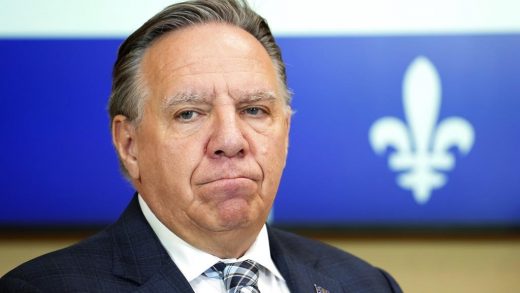Sri Lankans rally to demand release of 2 protest leaders

COLOMBO, Sri Lanka (AP) — Sri Lankan police blocked more than a thousand protesters who were attempting to march to the capital’s main railroad station on Wednesday to demand the release of two detained protest leaders and an end to a government crackdown on demonstrations against an economic crisis that has engulfed the island nation for months.
The protesters, including opposition lawmakers and trade union and civil rights activists, also urged the government to abolish a harsh anti-terror law under which the two student protest leaders have been held for more than two months.
The Rev. Jeewantha Peiris, a Catholic priest and prominent protest organizer, said Wasantha Mudalige and Galwewa Siridhamma have been detained for 74 days under the Prevention of Terrorism Act without any legal basis.
Mudalige and Siridhamma were involved in anti-government protests earlier this year, and their arrests drew wide condemnation.
The protesters marched Wednesday along a main road in Colombo toward the railroad station where they planned to hold a rally. But hundreds of police blocked the road, forcing them to abandon the demonstration.
“We are protesting because this government is not respecting the democratic rights of people,” said opposition lawmaker Eran Wickremerantne.
There was no immediate comment from the government on the protesters’ demands.
In March, the government introduced some reforms to the anti-terror law. However, opposition and rights groups called the reforms cosmetic and said the law still allows the detention of suspects without warrants and the use of confessions obtained through torture. They say the law, introduced during the country’s civil war in 1979, has been widely abused, causing a large number of innocent people to spend years in prison without trial.
Sri Lankans protested for months earlier this year over the economic crisis, which has led to severe shortages of many essential imported items such as medicines, fuel and cooking gas. Thousands stormed the president’s residence in July, forcing then President Gotabaya Rajapaksa to flee and later resign.
The protesters also occupied other key government buildings, including the offices of the president and prime minister.
The country’s new president, Ranil Wickremesinghe, cracked down on opposition, ousting the protesters from the government buildings.
Dozens of protest leaders and activists have been arrested, with some later released.
Rights groups say the military has sought to curtail protests through intimidation, surveillance and arbitrary arrests since Wickremesinghe took office in July.
The months of protests earlier this year dismantled the powerful Rajapaksa family’s grip on politics. Before Rajapaksa resigned, his older brother stepped down as prime minister and three other family members quit their Cabinet positions.
Wickremesinghe was elected by Parliament to complete Rajapaksa’s term, which ends in 2024. He is unpopular because he is supported by lawmakers who are still backed by the Rajapaksa family, which ruled Sri Lanka for most of the past two decades. Many accuse Wickremesinghe of protecting the Rajapaksas, who are widely blamed for corruption and misrule that led to the crisis.
Sri Lanka is effectively bankrupt and has suspended repayment of nearly $7 billion in foreign debt due this year pending the outcome of talks with the International Monetary Fund on an economic rescue package. The country’s total foreign debt exceeds $51 billion, of which $28 billion has to be repaid by 2027.
Credit: Sri Lankans rally to demand release of 2 protest leaders

